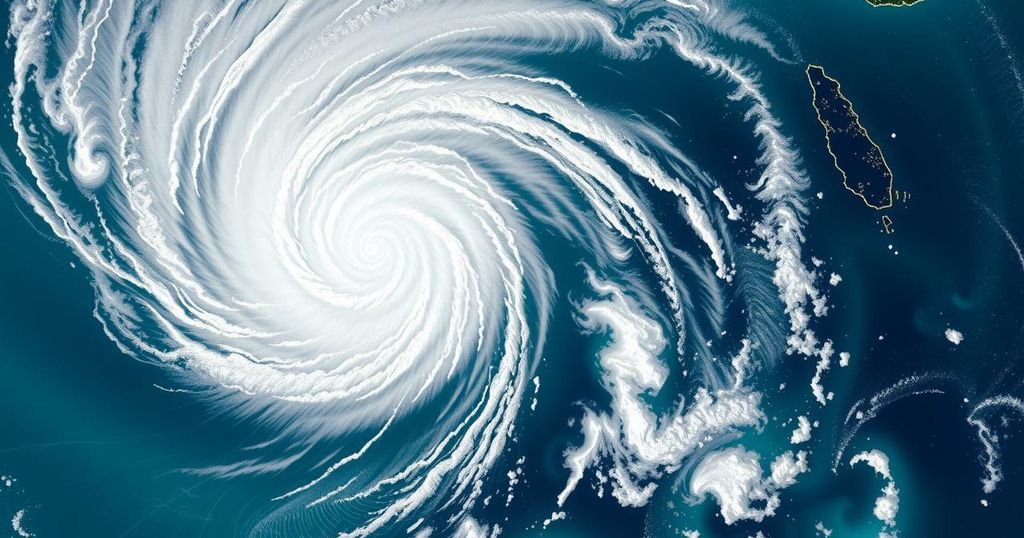Cyclone Chido Threatens Indian Ocean Islands as Preparations Ramp Up

Cyclone Chido is approaching the Indian Ocean islands of Comoros, Madagascar, and Mayotte, prompting emergency declarations, school closures, and red alerts. Madagascar has initiated evacuations and delivered supplies in anticipation of widespread impact, while Mozambique anticipates millions affected. Increased cyclone intensity has raised concerns about flooding, outbreaks of diseases such as cholera, and overall public safety in this cyclone-prone region.
The islands of Comoros, Madagascar, and Mayotte are on high alert as Cyclone Chido approaches the eastern coast of Africa. As the severe tropical storm made its advance towards the region, authorities have enacted emergency measures, including closing schools in Comoros, which anticipates impacts from Chido by Saturday. In addition, the French territory of Mayotte has been placed under a red alert, indicating imminent danger from the cyclone.
Madagascar is also preparing for the cyclone’s effects; the national government has broadcast warnings and initiated evacuations in critical areas, particularly in the northern region of Diana. Predictive models estimate that nearly 20,000 individuals could be at risk in Madagascar, prompting the delivery of essential supplies, including food and water pumps. Similarly, the Mozambique National Meteorological Institute forecasts that Chido’s landfall may impact 2.5 million residents across its northern provinces, Cabo Delgado and Nampula, with wind speeds projected to reach 200 kilometers per hour (124 mph).
Further south, even landlocked Zimbabwe anticipates potential repercussions from Cyclone Chido. The French government plans to dispatch around 110 personnel to Mayotte, including emergency responders and supplies aimed at mitigating possible damage. The cyclone season, from December through March, has seen an increase in severe storms attributed to climate change, raising concerns about natural disasters like Cyclone Idai in 2019, which claimed over 1,300 lives.
Experts from Crisis24 assert that Cyclone Chido may lead to destructive flooding, landslides, and subsequently, outbreaks of waterborne diseases such as cholera, alongside other health risks including dengue fever and malaria due to stagnant water pools.
The period from December through March marks the cyclone season in the Indian Ocean region, where history shows an uptick in severe storms likely exacerbated by climate change. For instance, Cyclone Idai in 2019 resulted in more than 1,300 casualties across Mozambique, Malawi, and Zimbabwe, while Cyclone Freddy last year led to over 1,000 fatalities in a similar swath of affected nations. This trend heightens concern for vulnerable coastal populations in Comoros, Madagascar, and Mayotte as Cyclone Chido poses a significant threat.
In summary, the imminent threat posed by Cyclone Chido has elicited a robust response from authorities in Comoros, Madagascar, and Mayotte, implementing crucial emergency measures as the cyclone nears landfall. With millions potentially affected and a history of devastating cyclones in the region, the arrival of Cyclone Chido underscores the pressing risks associated with climate change and the urgent need for emergency preparedness. The measures being adopted may save lives and mitigate the cyclone’s impacts; however, continued monitoring and support will be essential in the coming days.
Original Source: abcnews.go.com






